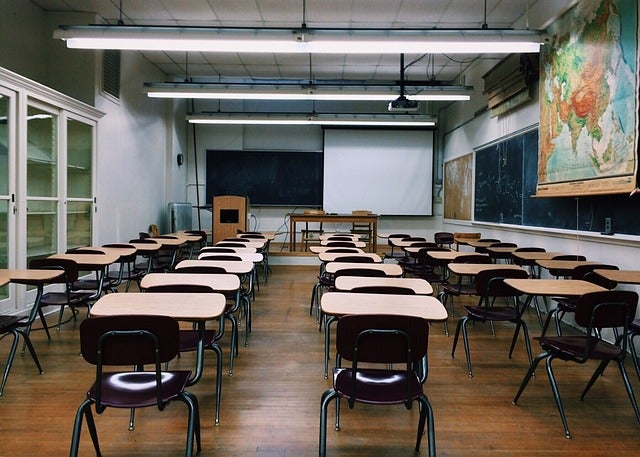Luther P. Jackson School plan set: Cumberland launches committee
Published 7:08 am Wednesday, November 20, 2024

- A look at Luther P. Jackson
|
Getting your Trinity Audio player ready...
|
The story of Barbara Rose Johns is the one people know. They’ve also heard about Moton High, and the Lost Generation who were kept from school in Prince Edward County, after supervisors shut down the buildings in response to the end of segregation. But what happened to those students from 1959 to 1964, while Prince Edward schools remained closed? For some, a temporary solution existed next door in Cumberland County, where officials had an addition built at Luther P Jackson School. That’s something Cumberland supervisors and staff want to highlight, as part of the plans to renovate and revive the school.
Supervisors unanimously voted to create the Luther P. Jackson Committee during their Tuesday, Nov. 12 meeting. The goal will be for the committee to help drive renovation ideas, come up with ways to use the building and to help tell the story of the school, why it was created and the part it played in Virginia history. Cumberland Administrator Derek Stamey said the committee will help direct historical interpretation, such as tours and programs, sharing details about the school from its beginning in 1952. Maybe that comes in the way of visual aids that people can read as they walk through the building. Maybe it’s through oral histories, shared through tours.
“One of the most important things we can do with a historical building is tell the story of that building so we don’t lose it for future generations,” Stamey told supervisors. He added that nothing is set in stone yet. That will be for the committee to come up with ideas and then recommend them to county officials.
“We still have to flesh that out once the committee gets up and started,” Stamey said of a plan on how to best use the facility. “We’ve got to determine a road map for how to accomplish that.”
The Luther P. Jackson School committee
Over the last month, Cumberland officials have asked those interested in get in touch and let them know. As of Nov. 12, the committee consists of four county staff members, including Stamey, Jennifer Crews, Bryan Saxtan and Samantha Pankey. It also includes two members of the Board of Supervisors, current Vice Chair Eurika Tyree and District 4 representative Paul Stimpson. Tyree previously attended Luther P. Jackson and the building is in her district, so she expressed this was a passion project. Now there’s still one piece of the committee missing. Supervisors want there to be five members of the community represented on the committee as well. They want to have at least some graduates from Luther P. Jackson and at least one person from each voting district, so the entire county can give input.
As for the building itself, there’s some work that needs to be done even before any renovation talk takes place. Currently, the school does not have a historic designation for the building. Because of that, it’s not eligible for certain grants. So that’s step one, to get it considered as and named on at least the state’s historic list.
There are also portions of the school that could be usable today, mainly sections on the first floor. The back side of the building was used at one time by Southside Community College for electrical shop class, so those sections may be slightly more up to date. It was also used in the past for a voting precinct. Staff members said it could be used for events and meetings, as long as no one punches holes in the walls where the asbestos is.
Who was Luther P Jackson?
But what about the school’s namesake? Who was Luther P Jackson? He is considered one of Virginia’s first civil rights activists of the 1930s and 1940s. Serving as a professor of history at Virginia State College in Petersburg for almost 30 years, Jackson was focused on research.
He authored Free Negro Labor and Property Holding in Virginia, 1830–1860, a 1942 research paper that challenged stereotypes of antebellum black residents. Three years later, he followed that up with Negro Office Holders in Virginia, 1865-1895. The purpose in these and several other of his more than 60 books and articles, Jackson said, was to show African Americans as productive citizens throughout history, proving they owned businesses and houses, as well as ran for and got elected to political office, all long before 1900.
He also helped found the Petersburg League of Negro Voters in 1935 and wrote a weekly newspaper column titled “Rights and Duties in a Democracy”. Jackson is also known for challenging Richmond’s segregated public transit system. He would go on to fight for civil rights up until his death in 1950. The school bearing his name went up in Cumberland in 1952 and after integration, it was converted into an elementary school, which ultimately shut down.
“This is a story that needs to be told,” said Cumberland Supervisors Chairman John Newman. “It needs to be told today and it needs to be told in the future.”
How can someone get involved?
Those interested in joining the committee can send in a volunteer application to the county administrator. They can also go to the county’s website and sign up that way as well. Those applications will then be given to supervisors, who will choose the final five.




